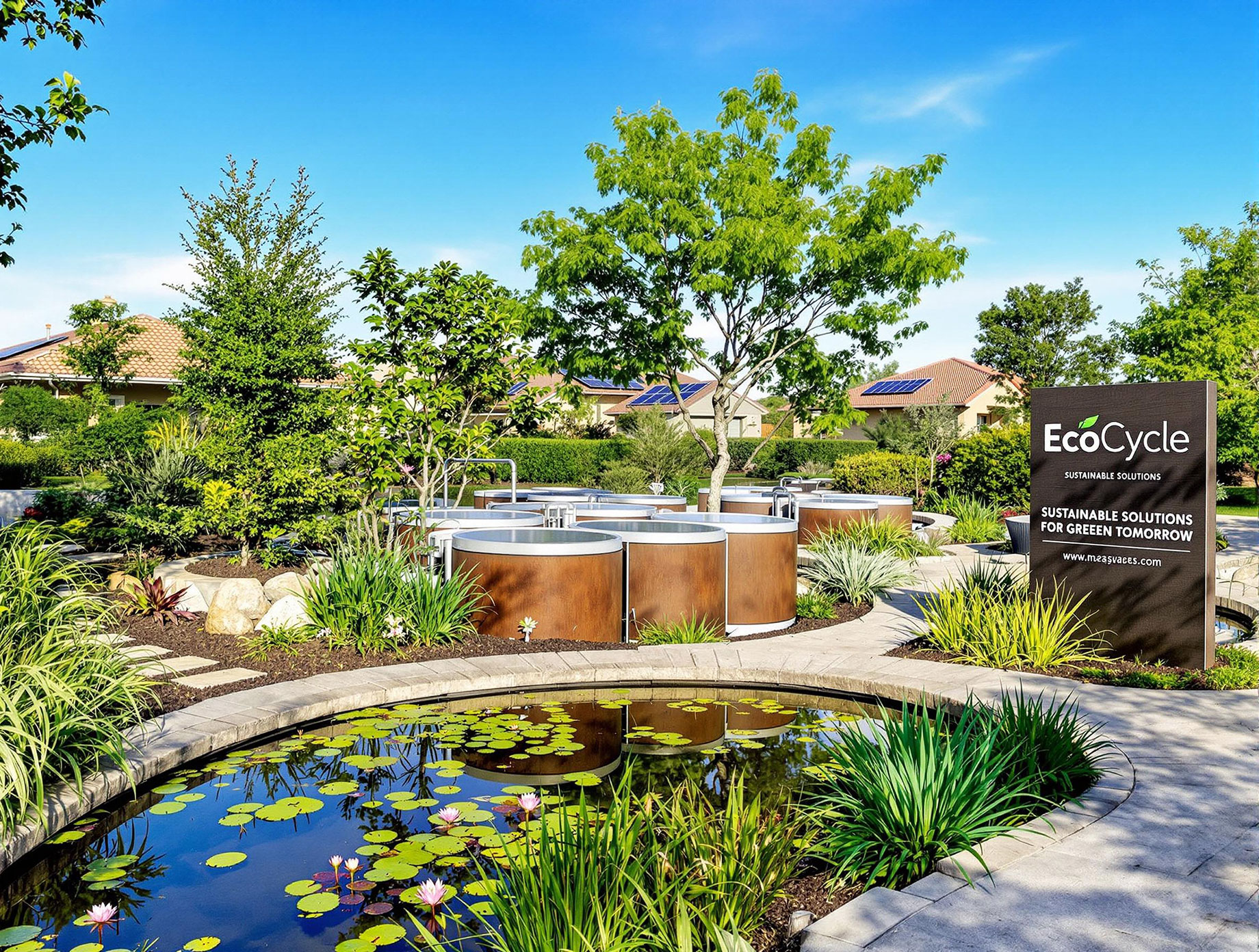
Decentralized wastewater treatment supports sustainable urban development
According to the World Bank, 4.4 billion people — more than half the global population — reside in cities, and that’s expected to double by 2050. As urban growth continues, communities need sustainable and cost-effective solutions to manage the wastewater they generate.
Decentralized wastewater treatment systems are proving to be a viable alternative to traditional municipal treatment systems and are particularly useful for new residential developments. Decentralized municipal treatment systems offer economic and environmental benefits because they reduce infrastructure costs, create opportunities for water reuse, and build resilience to water scarcity and other climate change effects.
Traditional vs. Decentralized Wastewater Treatment
Traditional municipal treatment systems consist of an extensive network of sewer pipes that connect homes to a central treatment plant some distance away. These systems have been used for decades, but they require extensive infrastructure, which means significantly higher construction and operating costs. There’s also a larger environmental impact because of the extensive earthworks required, and they are more vulnerable to climate-related disruptions such as floods.
However, the landscape of wastewater management is rapidly evolving. Emerging technologies, like advanced membrane bioreactors and integrated natural treatment systems, are enhancing the capabilities of decentralized solutions. These advancements are not only improving treatment efficiency and effluent quality but also reducing the physical footprint of these systems. This means that even densely populated urban areas can now effectively implement decentralized wastewater treatment, addressing the challenges of space constraints while still achieving superior environmental outcomes. These innovations are paving the way for a new era of sustainable and adaptable wastewater management.
Modern, decentralized municipal treatment systems do not require extensive infrastructure or pumping over long distances, resulting in cost savings and environmental benefits. Specifically, this translates to several key advantages, including:
- Lower infrastructure costs: One of the key benefits of decentralized treatment is lower infrastructure costs. It’s costly to construct and maintain a broad network of sewer pipes connected to a central plant, particularly in rural and suburban areas that are continually expanding. Decentralized systems do not require large-scale pipelines, and that significantly reduces the cost of materials, installation, and maintenance.
- Enhanced water reuse and conservation: Decentralized wastewater treatment systems can incorporate technologies that facilitate water reuse on-site. Treated wastewater can be used for nonpotable applications such as irrigation of landscaping or recreational facilities, or to recharge aquifers. This makes them particularly well-suited for regions that face water scarcity challenges. Treating wastewater for reuse reduces the demand on local freshwater sources and minimizes the discharge of effluent into the environment, thereby protecting freshwater systems. Decentralized treatment promotes efficient and sustainable use of water within communities.
- Increased resilience to environmental changes: Centralized wastewater treatment systems are vulnerable to climate change effects, such as flooding. When a central facility has service disruptions, the impact is widespread, with potential environmental and health risks to the community. Decentralized wastewater treatment systems build resilience with multiple, smaller treatment plants serving communities within the broader area. If one small plant faces service disruptions, the others can continue to operate, reducing the impact of extreme weather events while providing a sustainable and reliable treatment solution.
Beyond environmental benefits, decentralized systems foster community engagement and ownership. Localized treatment plants can serve as educational hubs, demonstrating the importance of water conservation and sustainable practices. This approach strengthens community ties and empowers residents to actively participate in environmental stewardship, contributing to a more informed and responsible citizenry.
Supporting Sustainable Community Development
Besides the direct benefits mentioned above, decentralized systems contribute to the United Nations’ sustainable development goals (SDGs), aligning with SDG 6 (Water and Sanitation) and SDG 11 (Sustainable Cities and Human Settlements).
By treating wastewater closer to where it is generated, decentralized systems reduce energy consumption and greenhouse gas emissions. With no need to transport wastewater over long distances to a centrally located facility for treatment, they have a lower carbon footprint. Additionally, they promote the efficient use and protection of resources by supporting water reuse.
While decentralized systems offer significant cost savings, budget constraints can still be an obstacle for cash-strapped municipalities. Innovative financing solutions can help overcome this hurdle. These agreements include public-private partnerships, build-own-operate, build-own-operate-transfer, and plant leases. They make decentralized treatment an affordable, practical, and accessible alternative for all communities.
The Future of Wastewater Management
As urban populations continue to grow, so will the demand for innovative wastewater management solutions. Decentralized treatment offers a sustainable alternative while providing the flexibility and scalability to expand capacity should the population grow and demand increase.
By incorporating decentralized wastewater treatment systems into development plans, municipalities and developers can contribute to a more sustainable approach to wastewater management that benefits the communities they serve as well as the environment.